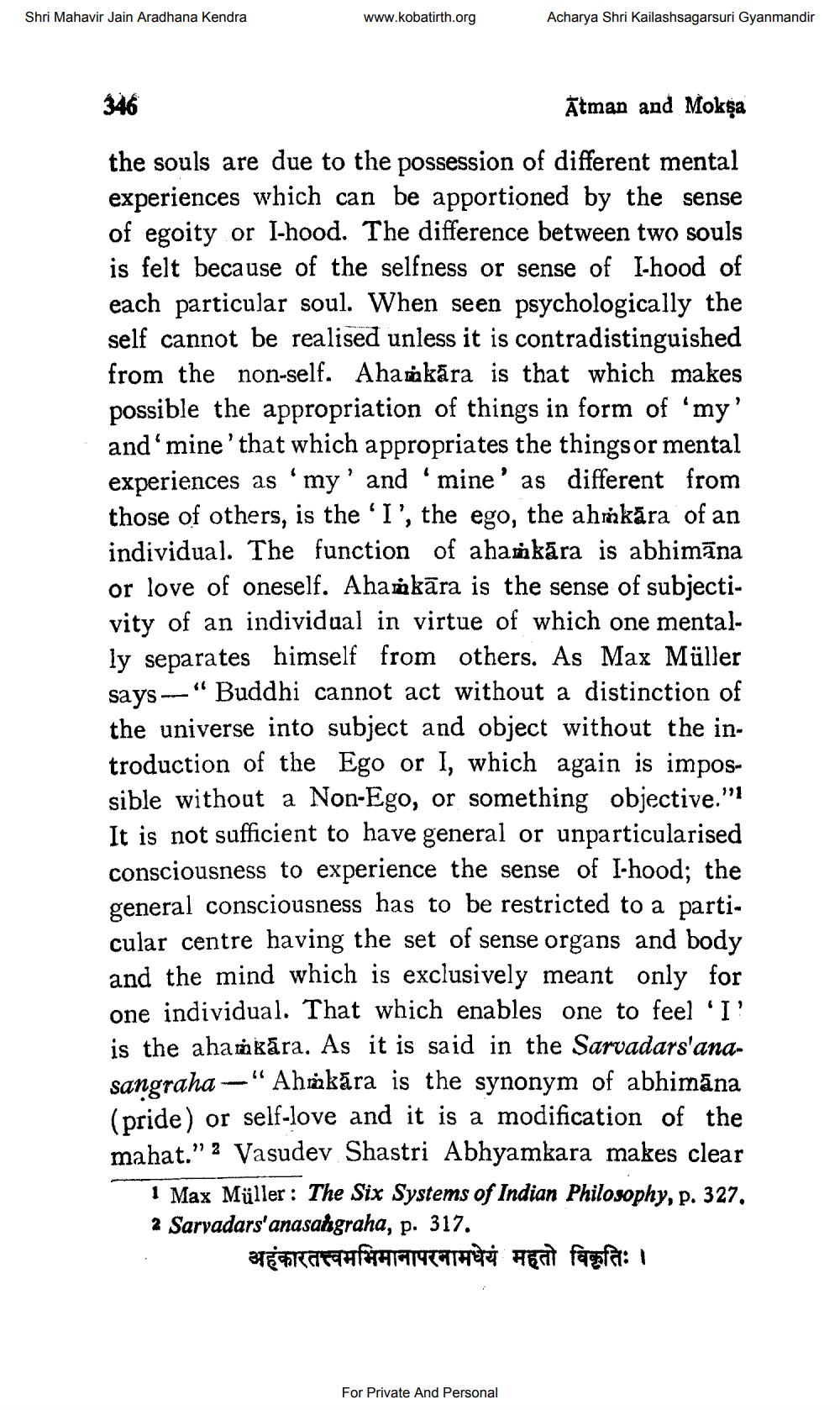________________
Shri Mahavir Jain Aradhana Kendra
www.kobatirth.org
Acharya Shri Kailashsagarsuri Gyanmandir
346
Ātman and Moksa
the souls are due to the possession of different mental experiences which can be apportioned by the sense of egoity or I-hood. The difference between two souls is felt because of the selfness or sense of I-hood of each particular soul. When seen psychologically the self cannot be realised unless it is contradistinguished from the non-self. Ahankāra is that which makes possible the appropriation of things in form of 'my' and' mine'that which appropriates the things or mental experiences as “my' and 'mine' as different from those of others, is the 'I', the ego, the ahmkāra of an individual. The function of ahamkāra is abhimāna or love of oneself. Ahamkāra is the sense of subjectivity of an individual in virtue of which one mentally separates himself from others. As Max Müller says --"Buddhi cannot act without a distinction of the universe into subject and object without the introduction of the Ego or I, which again is impossible without a Non-Ego, or something objective."'! It is not sufficient to have general or unparticularised consciousness to experience the sense of I-hood; the general consciousness has to be restricted to a particular centre having the set of sense organs and body and the mind which is exclusively meant only for one individual. That which enables one to feel 'I! is the ahamkāra. As it is said in the Sarvadars'anasangraha-"Ahmkāra is the synonym of abhimāna (pride) or self-love and it is a modification of the mahat.” 2 Vasudev Shastri Abhyamkara makes clear
| Max Müller: The Six Systems of Indian Philosophy, p. 327, 2 Sarvadars'anasaågraha, p. 317.
अहंकारतत्वमभिमानापरनामधेयं महतो विकृतिः ।
For Private And Personal




